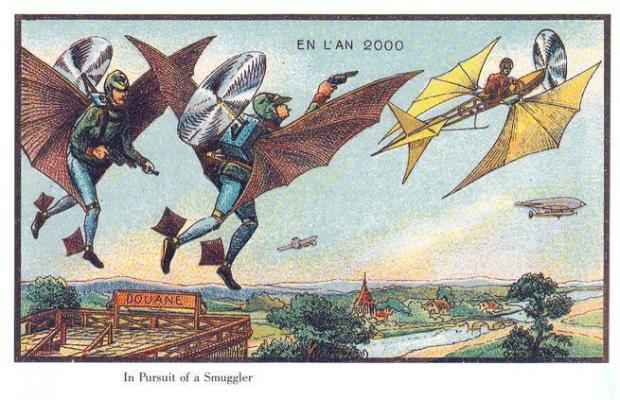
Breaking News
 Pentagon To Send 200 Troops to Nigeria
Pentagon To Send 200 Troops to Nigeria
 Trump Says He May Send Second Aircraft Carrier to Middle East To Prepare for Potential Attack...
Trump Says He May Send Second Aircraft Carrier to Middle East To Prepare for Potential Attack...
 A Market Crash and Recession Are Bullish, Not Bearish
A Market Crash and Recession Are Bullish, Not Bearish
 What Are They Still Hiding? New Epstein Questions Point to a Much Bigger Cover-Up
What Are They Still Hiding? New Epstein Questions Point to a Much Bigger Cover-Up
Top Tech News
 Drone-launching underwater drone hitches a ride on ship and sub hulls
Drone-launching underwater drone hitches a ride on ship and sub hulls
 Humanoid Robots Get "Brains" As Dual-Use Fears Mount
Humanoid Robots Get "Brains" As Dual-Use Fears Mount
 SpaceX Authorized to Increase High Speed Internet Download Speeds 5X Through 2026
SpaceX Authorized to Increase High Speed Internet Download Speeds 5X Through 2026
 Space AI is the Key to the Technological Singularity
Space AI is the Key to the Technological Singularity
 Velocitor X-1 eVTOL could be beating the traffic in just a year
Velocitor X-1 eVTOL could be beating the traffic in just a year
 Starlink smasher? China claims world's best high-powered microwave weapon
Starlink smasher? China claims world's best high-powered microwave weapon
 Wood scraps turn 'useless' desert sand into concrete
Wood scraps turn 'useless' desert sand into concrete
 Let's Do a Detailed Review of Zorin -- Is This Good for Ex-Windows Users?
Let's Do a Detailed Review of Zorin -- Is This Good for Ex-Windows Users?
 The World's First Sodium-Ion Battery EV Is A Winter Range Monster
The World's First Sodium-Ion Battery EV Is A Winter Range Monster
 China's CATL 5C Battery Breakthrough will Make Most Combustion Engine Vehicles OBSOLETE
China's CATL 5C Battery Breakthrough will Make Most Combustion Engine Vehicles OBSOLETE
$2 million competition aims to make jetpacks a reality by 2019

The dream of flight was never meant to be confined to a 28-inch seat with 150 strangers and miniature bags of pretzels. Early aircraft were fabric and wood extensions of their pilots' bodies, technological exoskeletons carrying a dream into the air. While the laws of aerodynamics and engineering drove planes into long aluminum tubes with wings, fiction maintained the dream of a personal flying tool that people could strap to their back, ride through the air, and then arrive intact and on-time at work. For decades, inventors endeavored to turn jetpack from fictional whim to real machines, with some limited success, but nothing so world-changing as to enter the mass market. GoFly, a Boeing-sponsored competition announced today, wants to turn jetpacks from an aviation novelty to an everyday tool. To do that, it's inviting people from around the world to enter a two-year contest, with $2 million total in prizes, for the creation of a personal flying device that can carry an individual 20 miles without refueling or recharging.



